The European Union Aviation Safety Agency (EASA) has released a list of 2024 reference prices for sustainable aviation fuel and other relevant air transport fuels under the ReFuelEU Aviation programme, ahead of a full report in September to assess the state of the region’s SAF market and compliance of obligated parties. With the exceptions of conventional aviation fuel and aviation biofuels, for which market prices are available, the EASA price guide for multiple new fuel types estimates production costs including feedstock, energy and technology deployment. The 2024 reference prices follow the New Year imposition by the EU of minimum SAF blending mandates at its airports, and vary from EASA’s 2023 estimates, which were released in December. The EASA assessments reflect lower average prices for conventional aviation fuel and aviation biofuels in 2024 compared to 2023. But in the latest estimates of production costs for new aviation fuels, including synthetic and hydrogen products, many are now more expensive.
The ReFuelEU Aviation programme requires aviation fuel suppliers, EU airports and airlines serving those markets to comply with the escalating SAF blending mandates, which start at 2% this year and increase to 70% by 2050.
A sub-mandate additionally requires that from 2030 synthetic aviation fuels, or SAF created by combining industrial, biogenic or atmospheric CO2 and green hydrogen, must account for 1.2% of aviation fuel content in EU markets, with the mandated mix rising to 35% from 2050.
The latest EASA ‘briefing note’ assessment, ‘2024 Aviation Fuels Reference Prices for ReFuelEU Aviation’, lists average prices of eligible fuels or their estimated costs of production per tonne ahead of the more detailed EASA technical report in September.
That report, says EASA, will provide “a comprehensive assessment of the status of compliance of the parties obligated under the ReFuelEU Aviation (RFEUA) Regulation as well as on the state and development of the SAF market in the EU and its member states.”
EASA adds the average prices listed in its briefing note will serve as a reference for EU member states both in determining penalties for non-compliance with mandated production, provision and use of SAF, and the support mechanism for SAF use under the EU Emissions Trading System Directive (EU ETS).
Pricing estimates in the 2024 briefing note vary from 2023 average prices released by EASA late last year in an assessment of Europe’s preparedness for increasing SAF demand.
In its 2024 assessment, EASA lists the average market price of conventional aviation fuel (CAF) at €734 ($797) per tonne, 10% lower than its 2023 average of €816 ($886).
Its latest average price assessment is also 25% lower for aviation biofuels, at €2,085 ($2,264) per tonne, compared to the estimate of €2,768 ($3,005) for 2023.
The reference prices for CAF and aviation biofuels were established using market prices, whereas the reference prices for the other RFEUA aviation fuels were determined using production cost estimations, factoring in feedstock, energy and technology deployment costs, as well as hypothetical production capacity estimations for 2024.
The costs of producing these other RFEUA fuels are now estimated by EASA to be higher in 2024 than they were in 2023.
The average cost per tonne of producing recycled carbon aviation fuels is estimated at €2,280 ($2,475) in 2024, compared to €2,125 ($2,306) in 2023, up by 7%.
Production of advanced aviation biofuels is estimated in the 2024 assessment to cost €2,715 ($2,947) per tonne versus €2,675 ($2,903) in 2023, up by 4%, while synthetic low carbon aviation fuels are also up by 4% to an average €5,525 ($5,997) compared to €5,300 ($5,753).
The average production cost of renewable hydrogen for aviation is estimated by EASA at €7,520 ($8,163) per tonne for 2024, 8.6% above the €6,925 ($7,517) estimated in 2023.
EASA also lists a higher average weighted production cost in 2024 for synthetic aviation fuels, estimated at €7,695 ($8,350) per tonne, 2.6% higher than the €7,500 ($8,139) estimate in 2023.
These year-on-year estimates by EASA are identical to its 2023 averages for synthetic fuel produced from CO2 either captured at the point of emission from industry or manufactured using biogenic CO2.
The highest estimate by EASA in 2024 was for SAF made with CO2 captured from the atmosphere, for which the agency listed the average cost of production per tonne at €8,470 ($9,191), 3% higher than the 2023 estimate of €8,225 ($8,926). That is 11.5 times higher than the estimated average for conventional jet fuel.
Only the average production price per tonne of low carbon hydrogen for aviation was estimated by EASA to be lower in 2024, falling by just under 1% to €4,655 ($5,052) from the 2023 figure of €4,700 ($5,101).
The ReFuelEU Aviation Regulation requires EASA to annually prepare and publish a technical report, starting in 2025.
Photo: Shell Aviation

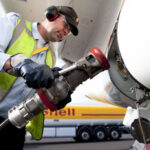


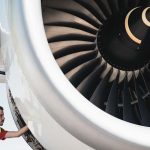

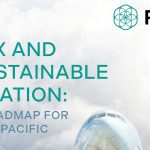
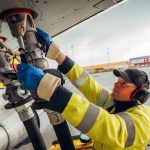
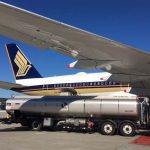






More News & Features
Early data shows uncertainty that UK SAF mandate can be met in its first year
Swiss advanced SAF technology startups Metafuels and Synhelion reach project milestones
PtX fuels have significant Asia-Pacific potential but face many barriers, finds report
Airfreight giants DHL Express and FedEx announce big US SAF deals
Asia-Pacific study reveals pessimistic outlook for SAF uptake by 2030 as Singapore details levy
Supply shortage means airlines have no chance of meeting a 10% SAF by 2030 target, says IATA chief